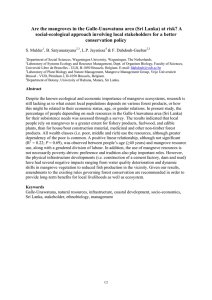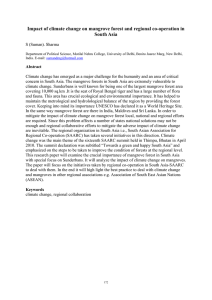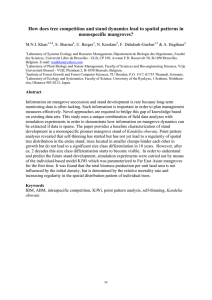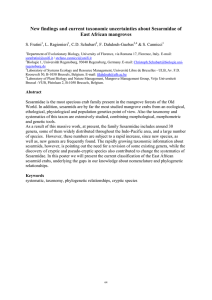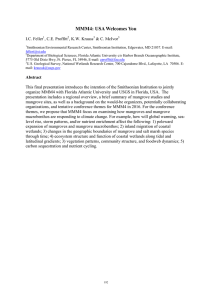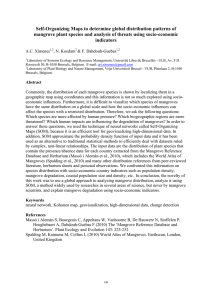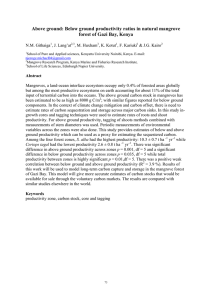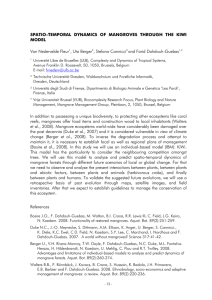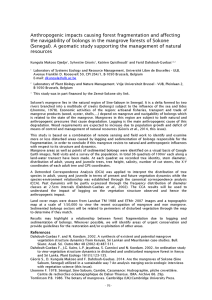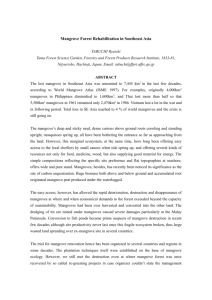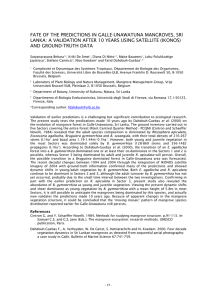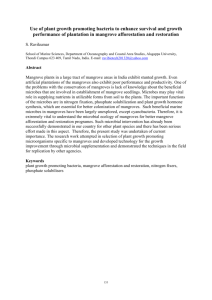Are the mangroves of Sokone (Sine Saloum, Senegal) utilized in... sustainable way? An analysis merging socio-ecologic interviews with
advertisement
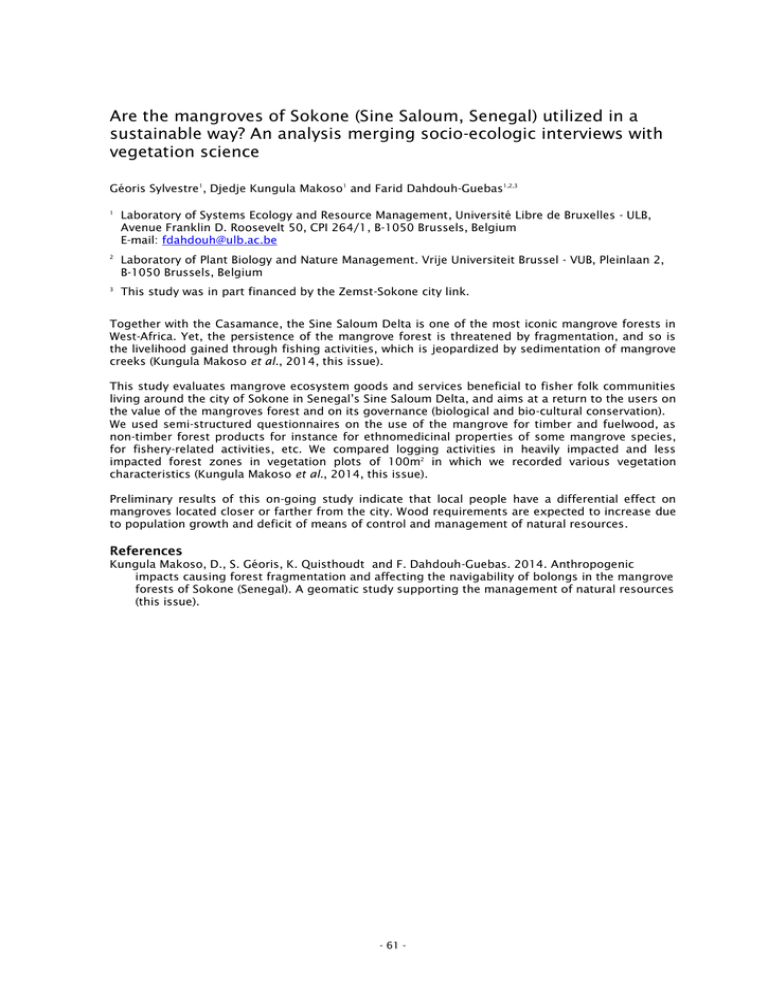
Are the mangroves of Sokone (Sine Saloum, Senegal) utilized in a sustainable way? An analysis merging socio-ecologic interviews with vegetation science Géoris Sylvestre1, Djedje Kungula Makoso1 and Farid Dahdouh-Guebas1,2,3 1 Laboratory of Systems Ecology and Resource Management, Université Libre de Bruxelles - ULB, Avenue Franklin D. Roosevelt 50, CPI 264/1, B-1050 Brussels, Belgium E-mail: fdahdouh@ulb.ac.be 2 Laboratory of Plant Biology and Nature Management. Vrije Universiteit Brussel - VUB, Pleinlaan 2, B-1050 Brussels, Belgium 3 This study was in part financed by the Zemst-Sokone city link. Together with the Casamance, the Sine Saloum Delta is one of the most iconic mangrove forests in West-Africa. Yet, the persistence of the mangrove forest is threatened by fragmentation, and so is the livelihood gained through fishing activities, which is jeopardized by sedimentation of mangrove creeks (Kungula Makoso et al., 2014, this issue). This study evaluates mangrove ecosystem goods and services beneficial to fisher folk communities living around the city of Sokone in Senegal’s Sine Saloum Delta, and aims at a return to the users on the value of the mangroves forest and on its governance (biological and bio-cultural conservation). We used semi-structured questionnaires on the use of the mangrove for timber and fuelwood, as non-timber forest products for instance for ethnomedicinal properties of some mangrove species, for fishery-related activities, etc. We compared logging activities in heavily impacted and less impacted forest zones in vegetation plots of 100m2 in which we recorded various vegetation characteristics (Kungula Makoso et al., 2014, this issue). Preliminary results of this on-going study indicate that local people have a differential effect on mangroves located closer or farther from the city. Wood requirements are expected to increase due to population growth and deficit of means of control and management of natural resources. Kungula Makoso, D., S. Géoris, K. Quisthoudt and F. Dahdouh-Guebas. 2014. Anthropogenic impacts causing forest fragmentation and affecting the navigability of bolongs in the mangrove forests of Sokone (Senegal). A geomatic study supporting the management of natural resources (this issue). - 61 -
